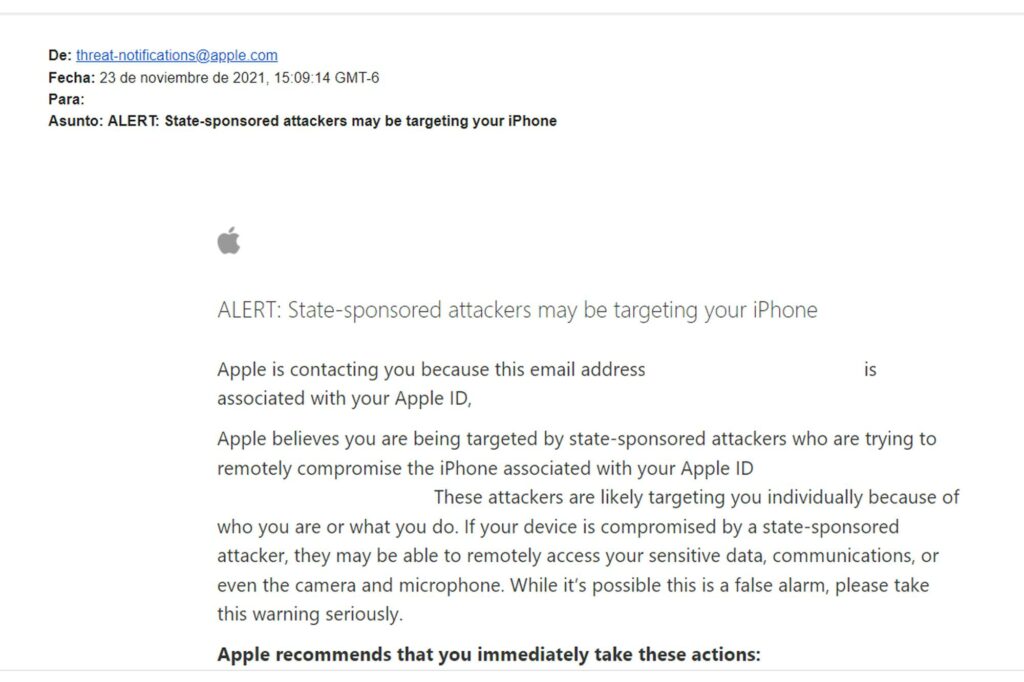Three persons linked to Ghana opposition party potentially targeted with Pegasus
 Until Ghana Business News broke a story about Ghana having bought Israeli tech company, NSO’s dangerous Pegasus equipment, most Ghanaians were unaware, despite a court case involving former government officials. The case was focused on the purchase of the equipment and nothing about its usage.
Until Ghana Business News broke a story about Ghana having bought Israeli tech company, NSO’s dangerous Pegasus equipment, most Ghanaians were unaware, despite a court case involving former government officials. The case was focused on the purchase of the equipment and nothing about its usage.
During the entire trial that lasted a couple of years, there has never been any public admittance that the software had been obtained and used in Ghana. Officials insisted that they only acquired the hardware and didn’t obtain the software, Pegasus, classified as a weapon and can only be sold by the Israeli company with the approval of Israel’s Defence Ministry.
Some of the officials were found guilty among others of causing financial loss to the state and jailed.
Some eight years ago, tech researchers at Citizen Lab, a group focused on the intersection of technology and information security found that a malware called Pegasus, which was bought from an Israeli company called NSO Group, was used to target journalists and activists in some cases.
According to Citizen Lab, Pegasus is able to jailbreak devices and spy on victims. It is described as the most sophisticated attack seen on any endpoint because it takes advantage of how integrated mobile devices are in people’s lives and the combination of features only available on mobile such as always connected (Wi-Fi, 3G/4G), voice communications, camera, email, messaging, GPS, passwords, and contact lists.
Then on November 25, 2021, Forbidden Stories, an investigative journalism organisation said in a tweet that they have tallied at least 28 more journalists have been hacked, in six countries including Ghana. It was the first time that Ghana was named in any leak or report on the targets of the Pegasus software, effectively opening a can of worms on whether Ghana has the software or not.
The tweet was in response to a lawsuit filed by Apple against NSO Group and its parent company, OSY Technologies. Earlier in July Forbidden Stories had done another investigation exposing how the dangerous software had been used in some countries around the world targeting political opponents, activists and journalists. The Pegasus software was used by the Saudi authorities to track and monitor murdered journalist Jamal Khashoggi.
Then last week, Israeli news organisations Haaretz and Hamakor, a TV station (Channel 13) published extensive reports detailing how NSO staff travelled to Ghana and trained officials on the use of the software. They published footages and documents showing far more than has been known to the public since the story of Ghana buying Pegasus emerged.
Going back to the Forbidden Stories investigation, the list of targets from six countries, El Salvador, Lebanon, Bahrain, Uganda, South Africa and Ghana, contained the phone numbers of 28 journalists. It is now known that the list includes three Ghanaians connected to the opposition National Democratic Congress (NDC) – they are Stanislav Dogbe, an aide to former President John Mahama, David Tamakloe, editor of the online publication Whatsup news and a known sympathiser of the NDC, and the son of the General Secretary of the NDC, Kweku Asiedu-Nketia.
Ghana Business News has spoken to all three and they have confirmed receiving the alert from Apple.
In a telephone interview with Ghana Business News, to clarify why he thought he would be a target, the junior Asiedu-Nketia said even though he isn’t actively involved in frontline politics, he manages his father’s campaign activities behind the scenes and he also manages his father’s businesses.

The individuals found in the leak for which Apple has sued NSO Group and its parent company, OSY Technologies, are users of the iPhone handset. Apple has sent alerts to these individuals informing them of a potential attack on their phones that could potential be coming from the state.
The three individuals received this alert.
Even though Ghana has been touted and very often showcased as one of West Africa’s most successful democracies, government after government has been opaque. The administration of the country lacks transparency, and despite a Right to Information Law, most public offices refuse to give out information.
By Emmanuel K. Dogbevi
Copyright ©2022 by NewsBridge Africa
All rights reserved. This article or any portion thereof may not be reproduced or used in any manner whatsoever without the express written permission of the publisher except for the use of brief quotations in reviews.
